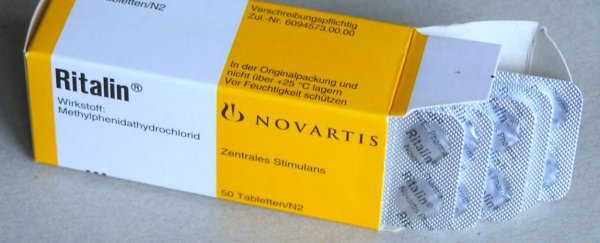It is an open secret: while athletes dope their bodies, regular office workers dope their brains. They buy prescription drugs such as Ritalin or Provigil on the internet's flourishing black market to boost their cognitive performance.
It is hard to get reliable data on how many people take such 'smart drugs' or 'pharmacological cognitive enhancement substances', as scientists call them. Prevalence studies and surveys suggest, though, that people from different walks of life use them, such as researchers, surgeons, and students.
In an informal poll among readers of the journal Nature, 20 percent reported that they had taken smart drugs. And it seems that their use is on the rise.
So, if you are in a demanding and competitive job, some of your colleagues probably take smart drugs. Does this thought worry you? If so, you are not alone. Studies consistently find that people see brain doping negatively.
A main concern is fairness. Imagine that while you are going for a run to boost your mental energy, your colleague is popping Ritalin instead. While you believe in your afternoon nap to regain concentration, your office mate relies on Provigil. Unfair?
The general public thinks that taking smart drugs is cheating, because it can give users a competitive edge. In fact, even several academics have argued that brain doping is unfair towards people who don't do it.
Mixed effects
So, if your colleague gets a better performance report than you do, is it really because of the Ritalin she takes? If your office mate has more creative ideas, is it because of Provigil? Probably not.
The smart drugs currently available can boost brain performance, yet they are not as effective as glaring media reports often suggest.
In fact, research shows that while they can help some people achieve better, they can actually make others perform less well than they normally would. Let's look at two prominent smart drugs, methylphenidate and modafinil, and their effects.
Methylphenidate, best-known under its brand name Ritalin, is a psychostimulant that increases the concentration of the neurotransmitters dopamine and norepinephrine in the brain.
Methylphenidate is usually prescribed to people who have attention deficit hyperactivity disorder ( ADHD). Indeed, this drug can have positive effects on memory performance. However, if methylphenidate can help with other important areas of cognitive performance, for example attention and learning, isn't clear yet.
Importantly, people who normally do not perform that well benefit more from taking it than people who are 'natural' high performers. Methylphenidate can even reduce the brain power of high performers, by weakening their short-term memory, for example.
Modafinil, sold under names including Provigil or Alertec, is a wakefulness-promoting drug. Although its effects on the brain are not fully understood yet, modafinil works in part by increasing dopamine concentration.
It has been developed to treat sleep disorders such as narcolepsy. Taking modafinil does improve attention, but it is still unclear whether it also brings any other cognitive benefits. If it does, they are likely to be small.
But modafinil might also make you less smart: it can reduce creativity and flexibility in thinking. Also, similar to methylphenidate, modafinil boosts brain power more for people who normally show low performance.
In other words, if you take modafinil you might make your performance better in one domain, but reduce it in another. And you will hardly benefit if you are a high performer anyway.
That's because smart drugs influence the concentration of neurotransmitters in the brain. Performance is highest at an optimal concentration, and both having too low and too high levels can make it worse.
If you are a low performer, increasing your probably low concentration of a certain neurotransmitter with a smart drug can help you. If you are a high performer, you are probably close to having an optimal neurotransmitter concentration already and increasing it further will not improve your performance – it will make it worse.
So there is an upper limit of how much can be achieved with brain doping. This is even true for low performers: by taking too many smart drugs, you just push your neurotransmitter level above the optimum and get reduced smartness in return.
Where does this leave us?
Instead of taking smart drugs, going for a run or taking a nap might actually be a better idea. Research shows that physical exercise improves, for instance, memory and learning, especially if done regularly.
Similarly, sleep can improve brain power, even if you are not tired. It has particularly large positive effects on memory, but can also increase creativity. Even naps as short as six minutes during daytime can improve memory.
There are so far no studies that directly compare such non-pharmacological means to improve cognitive performance with smart drugs, but it appears that smart drugs are not more effective.
Some might argue that smart drugs are therefore no big deal at all – and that we we should simply stop thinking that it's unfair to take them. I don't think it is that simple.
People still tend to overestimate the effectiveness of smart drugs, which may lead them to order such drugs from an unregulated black market on the internet – despite the potential long-term side effects. The truth is that we just don't know whether there are any such side effects yet.
Also, overestimating the power of smart drugs can stigmatise users and create tensions between users and non-users, for example when they work together in teams. Our task as scientists is to help people get an accurate picture of what smart drugs can do – and what they cannot.
Nadira Faber, Research Fellow, University of Oxford.
This article was originally published by The Conversation. Read the original article.
![]()
